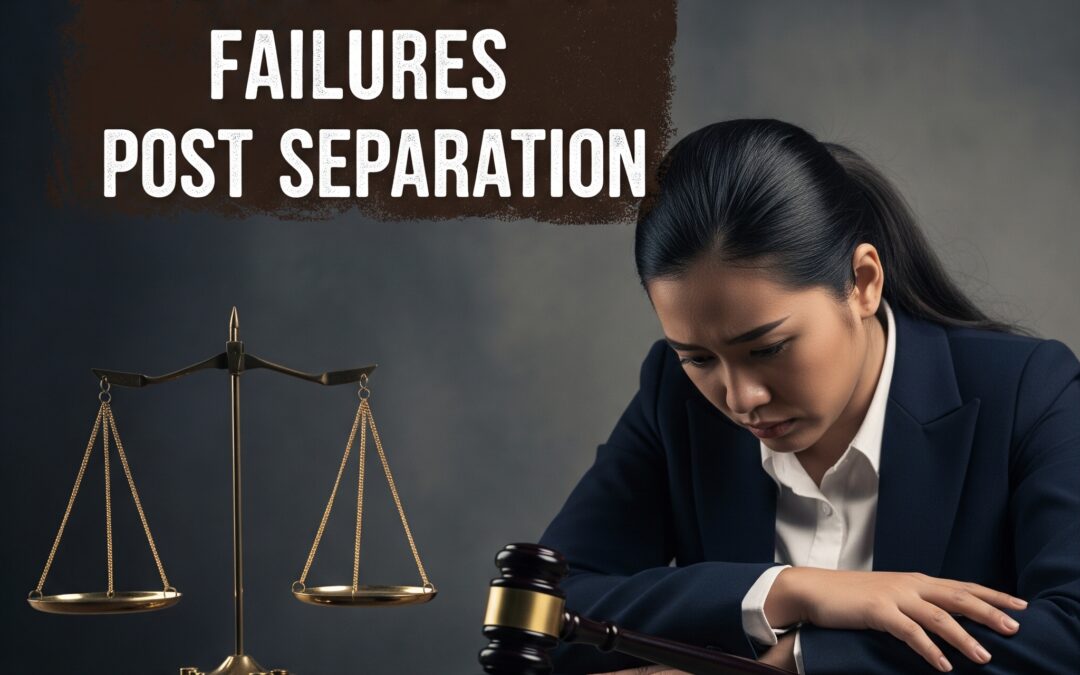At the end of non-married relationships couples can normally end things amicably without the need to litigate. This usually means discussions about how each party will be able to start over again. Women are normally more inclined to have been in the “housewife, homemaker role” and more likely to be economically dependent or in vulnerable situations. Some countries in Europe have not fully recognised legal protections for non-married relationships.
Negotiation versus Litigation
The advice to “negotiate” is often a standard legal recommendation in situations between separating non-married couples. However, legal professionals, social workers, police, judges, need to understand that this advice is useless if the power dynamics and emotional history of the relationship make true negotiation impossible. Emotional manipulation, psychological abuse, economic coercion, threats, and intimidation can leave a victim in a state of grief, shock, fear, anxiety, and a loss of all sense of self. This is a difficult situation to recover from without a support network. Add in institutional sexist violence and systemic failures, and it becomes an impossibility.
Questions need to be asked.
Here are the questions judges and solicitors should be asking in these situations to move beyond a simple “property dispute” and into a more “just and equitable resolution”. These questions are designed to uncover the power imbalances, financial contributions, and emotional history that are so often ignored.
Questions for Solicitors to Ask Their Client.
A solicitor’s role is not just to file papers, but to understand the full scope of their client’s situation to build the strongest possible case.
For the party seeking eviction (the plaintiff):
Relationship and History:
* “Tell me about the relationship. How long did you live together? How did you divide household responsibilities and finances?”
* “Was there ever a financial agreement, either formal or informal, about property ownership, rent, or utilities?”
* “What was the financial arrangement for this property? Did the other person contribute to the mortgage, rent, or maintenance? If so, do you have any records (bank transfers, receipts)?”
* “What conversations did you have about the future of the relationship and the property? Were there any promises or assurances made?”
* “What is your relationship with the other party like now? Has it always been this way?”
Previous Attempts at Resolution:
* “What steps did you take before coming to me? Did you try to negotiate a move-out date? What was the result of those conversations?”
* “Are you aware of any previous complaints or legal actions filed by the other party, such as for gender violence or harassment, even if they were dismissed?”
* “Is the other party financially dependent on you? What is their current financial situation as far as you know?”
The Eviction Process:
* “What is your legal basis for the eviction? Is the other party a tenant, or are they considered a ‘precarious’ occupant without a formal title?”
* “Have you considered any alternatives to eviction, such as offering a financial settlement or providing time for them to find a new place to live?”
For the party facing eviction (the defendant, like myself):
Relationship and History:
* “Tell me everything about your relationship with the plaintiff, from beginning to end. When did you move into the property? What was the understanding at the time?”
* “Did you contribute financially to the property in any way? This includes rent, mortgage, utilities, furniture, or home improvements. If so, can you provide any evidence?”
* “Were there any promises made about the property or your long-term security in the relationship? (e.g., ‘This is our home,’ ‘We’ll live here forever.’)”
* “Did your role in the relationship (e.g., homemaker, caregiver) impact your ability to earn an income or build your own assets?”
The Breakdown of the Relationship:
* “What led to the end of the relationship? Can you describe the events that led to the demand that you leave the property?”
* “Have you experienced any emotional, psychological, or financial abuse during the relationship or since it ended?”
* “Did you ever make a complaint or take legal action against the plaintiff for any reason?”
(Even if a case was dismissed, this is crucial information.)
Their Current Situation:
* “Do you have a place to go if you are evicted? Are you financially independent, or will you need support to find a new home?”
* “Are there any other extenuating circumstances that the court needs to be aware of, such as a language barrier, a health condition, or a lack of family support in Spain?”
* “What is your ideal outcome in this situation?”
Questions for Judges to Ask in Court
A judge’s role is to ensure a fair trial and to consider all relevant evidence. A proactive judge would ask questions that challenge the simple “I own the house, she has to leave” narrative.
To the Plaintiff:
* “Can you demonstrate that the defendant’s stay in the property was always intended to be temporary or ‘precarious’?”
* “Did the defendant’s actions or contributions (financial or otherwise) lead them to have a reasonable expectation that this was their shared home?”
* “What is the basis for your claim that the relationship has ended? Is there a history of conflict, and if so, has there been any legal action related to it?”
To the Defendant:
* “Can you provide evidence of your financial or other contributions to the property or the relationship as a whole?”
* “Can you explain why you believe you have a right to remain in the property or a right to a financial settlement?”
* “What is your current financial and housing situation? What would be the immediate consequence of eviction?”
To Both Parties (or their solicitors):
* “Is there any history of domestic or gender-based violence that is relevant to this case? Has a complaint ever been made, even if it was not prosecuted?”
* “Have the parties made any “good-faith” attempts to negotiate a settlement? If not, why?”
* “Has the plaintiff offered any financial or logistical support to the defendant to facilitate a move?”
By asking these types of questions, judges and solicitors can move beyond a purely procedural view of eviction and delve into the human and relational factors that make these cases so complex.
This is how the legal system can begin to provide more equitable outcomes and better protect vulnerable individuals. The failure to ask these questions, as I’ve experienced, is a failure of the system itself.
No other woman should experience what I have experienced in the last five years.
5th Anniversary Campaign
Lifechangeplans: My Voice, My Truth
Can you help support the campaign to raise €5000?
Buy the book.
Or make a donation.
Share the story.
https://linktr.ee/lifechangeplans



